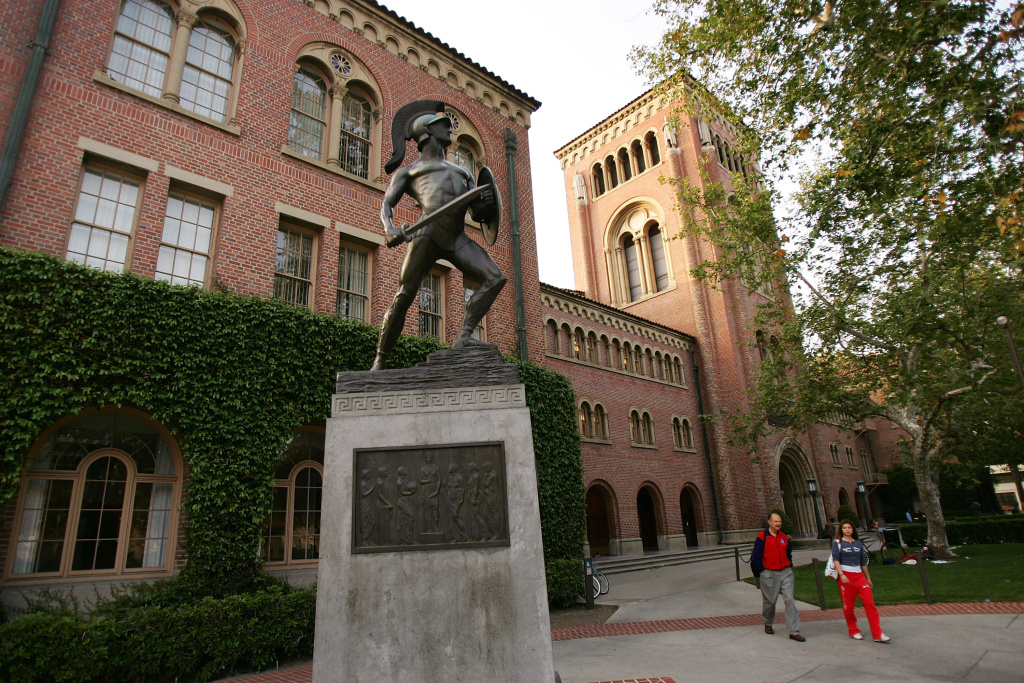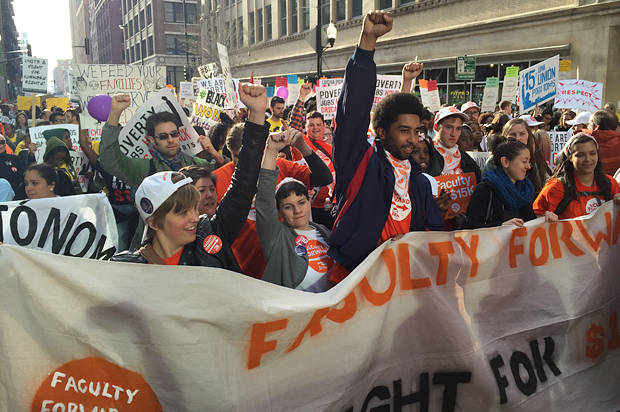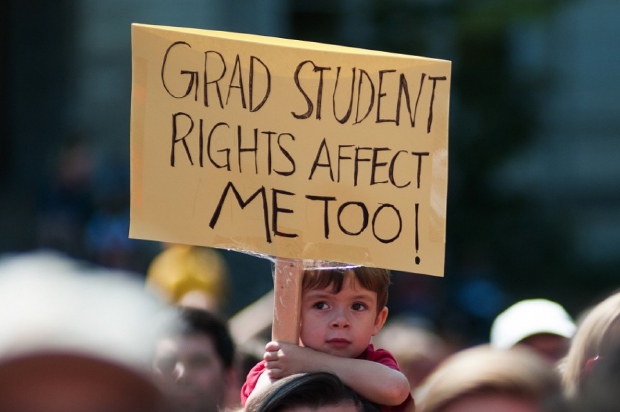5 Reasons We're Forming a Graduate Student Union at USC
As you may have heard, graduate students at private universities recently won the right to form unions. We’re writing you today to tell you why we’re organizing to form a graduate student union at USC.
1. Together we can fix a broken system.
Our colleges and universities are becoming a luxury for the wealthy instead of a pathway to the American Dream. Students spend their entire lives trying to pay off debt, yet instructors are paid so little that they qualify for food stamps — all while top administrators pay themselves millions. Together we can fight to restore the promise of higher education: a commitment to quality, accessible instruction that graduates students without debt, pays educators a living wage, and generates more opportunities for everyone in our communities.
2. Gaining a voice on campus.
Graduate students are the glue that binds our university together, but all too often we’re overlooked and overworked. A union is a way to be heard. A way to come together, build collective power and help bring about greater change at our and other higher education institutions.
3. Getting back control of our work.
A Graduate student union will bring more security and control over the terms of our work, teaching, and research. Our working conditions directly impact student learning, research outcomes, and our own health and well-being. By forming a union, we can secure a strong, collective voice for ourselves, our work, and the students we teach.
4. Winning the better pay and improved benefits we deserve.
USC relies on us for undergraduate and graduate instruction, to support research projects, and to further the work of tenured and tenure-track faculty, all of which contribute to maintaining an exceptional academic experience, improved student outcomes, and increased university rankings. But despite our importance, our work is often undervalued and under-appreciated. We teach and research without an adequate voice in pay, healthcare coverage, and university fees, even when the cost of living in Los Angeles continues to skyrocket. Graduate students and faculty who have formed unions have won landmark improvements in wages, access to benefits, and professional development in their first contracts.
5. We’re in this together.
As the fall semester continues, USC graduate students are organizing to build a strong union on campus, and we’re not alone. Graduate student organizing campaigns are underway at universities across the country, including Duke, Saint Louis University, Northwestern, American University, and Vanderbilt.
As graduate students, we need a strong, united voice to effect change. We believe the best way to improve our working conditions and fix higher education is by coming together to form a union.
Will you join us? Take the first step: fill out the confidential form below to show your support.
All the best,
Victor Sánchez, Research Assistant, Program for Environmental and Regional Equity
Peter Guekguezian, Teaching Assistant, Dornsife College of Letters, Arts, and Sciences



